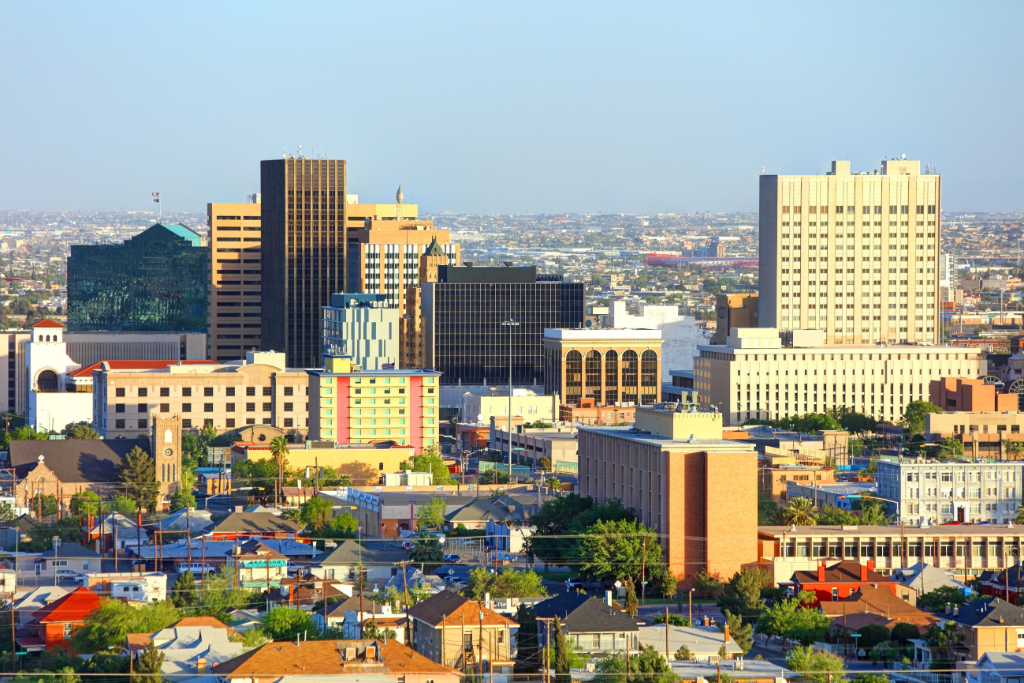1. First steps before moving to Ireland
Visa requirements
As an American Citizen, there are many ways you can move to Ireland. Ireland has all sorts of visas that will permit you to live in the country. Ireland’s visa application process is almost entirely done online which saves you a lot of time. The following visas are some of the most popular long stay visas. To find out more about the visa you need in your specific situation and to apply for an Irish visa, visit Ireland’s Visa Application Website.
Moving to Ireland on an Employment Visa
Before applying for your employment visa, you must obtain an employment permit from the Department of Jobs, Enterprise & Innovation (DJEI). After receiving your employment permit from the DJEI, you can apply for your employment visa up to 3 months before moving to Ireland. Go to Ireland’s Visa Application Website to apply for your employment visa.
Moving to Ireland on a Study Visa
You can apply for an Irish study visa if you’re planning to study in Ireland for over 3 months. Before applying for an Irish study visa, it is recommended by the Irish government to read the Policy for Non-EEA National Students. You can apply for your study visa up to 3 months before moving to Ireland. Go to Ireland’s Visa Application Website to apply for your study visa.
Moving to Ireland on a Long Stay (Join Family) Visa
If you are planning to move to Ireland for over three months to join a family member who is an Irish citizen or lawfully resident, you must apply for a long stay (join family) visa. Before applying for a long stay (join family) visa, you must carefully read all the requirements. A long stay (join family) visa is one of the longest visas to process, so make sure you apply at least a year before you plan to move to Ireland. To apply for your long stay (join family) visa, go to Ireland’s Visa Application Website.
Finding a job
As of August 2023, Ireland’s unemployment rate is 4.1% compared to the population of 5 million plus residents.
Ireland has a high demand in many sectors including registered nurse, information security analyst, software engineer, e-commerce manager, digital content creator, UX/UI designer, financial advisor, automation engineer, sustainability manager, data scientist, to name a few.
When finding a job in Ireland, you can use employment vacancies and internet job postings like Indeed and LinkedIn.
Indeed (Oct 2023) & Central Statistics Office (August 2023)
Getting there
Traveling from the U.S. to Ireland by air is the most convenient option. The main international airports in Ireland are typically Dublin, Shannon, and Cork, making them ideal choices for your arrival.
The duration of your flight may vary based on the specific route and layovers, but a nonstop flight typically takes around 6 to 8 hours. Upon arrival in Ireland, make sure to complete any required immigration and customs procedures, and you’re ready to embark on your new adventure in this captivating country.
What should I look for in an International Moving Company?
Shipping your things to Ireland takes about 1–3 days by plane and 8–11 days by boat. You can easily move your things from US to Ireland by plane or boat, but make sure the moving company you decide on is reliable. So when opting for an international moving company, here’s what you should look for:
- Insurance is included (ask what’s included)
- Rates are not extravagant (compare with other companies)
- They have many Google reviews that are over 4 stars.
- Customer service and transparency is their priority.
Car shipping to Ireland
Unless they have significant emotional attachment to their car, most Americans choose to leave their cars behind when moving to Ireland due to the elevated shipping and import fees and the long vehicle inspection process. If you must absolutely ship your car to Ireland, here are the steps to follow:
- Get various quotes from the best car shipping companies. A trusted car shipping company will have insurance, good reviews, and will make customer service their priority.
- Choose the port of departure.
- Choose the port destination.
- Prepare the car by cleaning it and emptying the tank to ⅛ full, or you may have to pay a fee upon arrival.
*Ask your chosen car shipping company for additional requirements.
Must dos before your arrival
- Define your required visa or permit to enter and stay in Ireland.
- Make sure that your passport is valid for your entire intended stay in Ireland.
- Secure a pre-accommodation before your move.
- Be prepared to learn new words and phrases, as people from all around Ireland have a variety of accents and vocabulary!
- Ireland uses the euro (€), while Northern Ireland uses the British pound sterling(£), so make sure to bring enough pounds if traveling there.
- Plan your move in advance, check international movers.
2. Upon your arrival in Ireland
Must dos right upon your arrival
- Get to know your neighborhood, local stores, pharmacies, and emergency phone numbers.
- Notify your employer and get guidance on next steps after your arrival.
- Check requirements for your license to drive in Ireland.
- Consider opening a local bank account for financial convenience.
- Immediately book an appointment with the GNIB to get your residence permit.
- Obtain the PPS Number for paying taxes, getting a driver’s license, and accessing healthcare.
Healthcare
Ireland has a full government funded public healthcare system. To access Ireland’s healthcare system, you must be living in Ireland as a resident for one year. After living in Ireland for one year, you may become fully eligible or partially eligible for access to Ireland’s healthcare system. For more information on how to access Ireland’s healthcare system as an American, visit Ireland’s Health Service website.
While the public healthcare system is free in Ireland, some still choose to opt for private health insurance. Having private health insurance in Ireland is beneficial as it may help you avoid the long wait times to see a doctor. The top private health insurance companies in Ireland are Irish Life Health, Laya Healthcare, VHI Healthcare, and HSF Health Plan.
Setting up your cell phone
o make sure you can use your American cell phone in Ireland, make sure it is unlocked prior to your arrival. Having an unlocked cell phone allows you to use an Irish SIM card. SIM cards in Ireland cost around $20 USD and can be purchased at any local phone shop. After purchasing your SIM card in Ireland, you can expect to have 25Gb of data with unlimited calling and texting for around $48 USD per month. The top cell phone / mobile phone service providers in Ireland are Vodafone, Eir, and Three.
Getting a driver’s license
You can use your American driver’s license for up to 12 months when moving to Ireland. After 12 months, you must undergo a theory and practical driving test to get your Irish driver’s license. To apply for your Irish driver’s license, go to Ireland’s National Driver License Service Online.
Car insurance in Ireland
Car insurance is mandatory in Ireland. Third-party liability insurance is the minimum level of insurance that you must purchase in Ireland. Driving without insurance in Ireland can get you fined up to 5000 euros and will cost you 5 penalty points. The top car insurance providers in Ireland are Chill, Allianz Ireland, Liberty Insurance, and AA Car Insurance.
Setting up a bank account
Opening a bank account in Ireland is essential, but is not considered to be easy due to the country’s history with money laundering and fraud. To open a bank account in Ireland, you will need your passport and a proof of address. The most popular banks in Ireland are Bank of Ireland, Allied Irish Banks, Permanent TSB, and Ulster Banks Ireland.
Ireland Currency
Ireland has two currencies: the euro (€) and the British pound sterling (£). The Republic of Ireland uses the euro. The euro comes in bills of €5, €10, €20, €50, €100, €200, and €500. The euro coins are split into cents that come in €2, €1, 50¢, 20¢, 10¢, 5¢, 2¢, and 1¢. The British pound sterling is only used in Northern Ireland where the euro is not accepted. So if you’re traveling to Northern Ireland, make sure you bring enough pound sterling with you.
Get your Residence Permit (GNIB Card)
Once you have arrived in Ireland, you should immediately book an appointment with the Garda National Immigration Bureau (GNIB) to get your residence permit. This residence permit comes in the form of a card and costs around $365 USD. Lines are often long so make sure you book an appointment as soon as possible. To know the location of your local GNIB office, click here.
Get your PPS Number
Another important task to get done upon your arrival in Ireland is to get your PPS Number (Personal Public Services registration). The PPS Number is mandatory to pay your taxes, get a driver’s license, and to access the healthcare system. You can get your PPS Number at your local Social Welfare Office or online on Ireland’s MyWelfare website.
Best places to live in Ireland

Moving to Ireland means deciding where you want to live and considering your priorities. We’ve listed the best places to live in Northern Ireland!
|
Cities |
Characteristics |
|
Mid Ulster |
Ideal for outdoor enthusiasts, offering the beauty of the Sperrin Mountains for hiking and Lough Neagh for water activities. |
|
Fermanagh |
A hub for water activities, with an abundance of lakes and rivers, particularly Lough Erne. |
|
Ards and North Down |
Rich in history and culture, boasting heritage sites and a vibrant arts scene. |
|
Bangor |
Perfect for beach lovers, with sandy shores along Belfast Lough. |
|
Lisburn and Castlereagh |
Balances rural and urban living, providing the best of both worlds. |
Setting up home services
ESB (Electrical Supply Board) maintains and distributes electrical services in Ireland but you will have to contact your local supplier to have your electricity set up. Electricity is quite expensive in Ireland and payment needs to be made on a monthly basis. The case is somewhat similar for gas supply as electricity and gas are both supplied by a single service provider. The top electricity and gas providers in Ireland are Energia, SSE Airtricity, Flogas, Iberdrola, Bord Gáis Energy, Electric Ireland and Panda Power.
For water in Ireland, create an account with Irish water, which is Ireland’s only water service provider. Tap water is drinkable and monitored by the local authorities to maintain its standard. There are no charges for water until a certain threshold, after which, charges start to apply. This is decided based upon the number of residents as per the Water Services Act 2017.
Ireland has some of the fastest internet speeds in the world. You can expect to pay around $70 USD for unlimited internet at 100 Mbps in Ireland. The top internet providers in Ireland are Siro, Vodafone, Eir, Pure Telecom, Sky, and Virgin. Virgin is known to have the highest internet speeds in Ireland.
Should you rent or buy?
Renting in Ireland is expensive, so many people opt to rent a room or live with a roommate. You can easily find rentals online on websites like daft.ie, rent.ie and myhome.ie
Buying a house in Ireland is a good investment as it saves you from throwing away all that money on expensive rent. You can find houses for sale by using real estate agents, auctioneers, and on online websites. You can find houses for rent in Ireland on myhome.ie, property.ie, and perfectproperty.ie.
Home insurance in Ireland
Unlike many of its neighboring countries, home insurance is not mandatory in Ireland. Home insurance is still very beneficial as it will cover the cost of your home in case of a natural disaster or fire. The top home insurer’s in Ireland are Chill, Allianz, FDB, and AXA Ireland.
4. Cost of living in Ireland
|
Category |
Monthly cost |
|
1 bed apt rent outside city center |
$1,302.80 |
|
Groceries Numbeo’s grocery list ($48.71 multiplied by 4) |
$194.84 |
|
Utilities Electricity, heating, cooling, water, garbage |
$219.79 |
|
Internet with 60 Mbps |
$51.50 |
|
Transit pass |
$106.03 |
|
Entertainment Meal, taxi, movie |
$81.65 |
|
Gym membership |
$49.27 |
|
Total |
$2,005.88 |
Tips when doing Groceries in Ireland
In Ireland, you can find various types of grocery stores that stock both local and international food. It’s essential to remember to bring your reusable bags because they impose a fee for plastic bags in Ireland. Additionally, be prepared to pack your own groceries, and please note that shopping early on Sundays might not be an option. There are numerous convenience stores and supermarkets in Ireland where you can shop, including:
Convenience stores:
-
Centra
-
Spar
-
Londis
-
Mace
-
Gala
-
Costcutter
-
Applegreen
Superstores:
-
Aldi
-
Dunnes
-
Eurospar
-
Lidl
-
M&S
-
Supervalu
What to Expect from your New Life in Ireland
While Ireland is a bit expensive, its rich beauty and culture will sure make up for those high costs. Ireland is a beautiful country, but it does rain a lot, so remember to bring your raincoat and umbrella with you. A lot of stores are closed on Sundays, so plan your shopping schedule ahead!
5. The weather in Ireland
Moving to Ireland from the U.S. simply means getting used to the local weather. Ireland has a pleasant, humid, and changeable climate with plenty of rain and a lack of temperature extremes that can be unpredictable at times.
May and June are the sunniest months, while December and January are usually the wettest months.
Ireland’s location in the Atlantic Ocean, which is constantly warmed by the Gulf Stream, accounts for this. Winter temperatures range from 4.0 °C to 7.6 °C, while summer temperatures range from 12.3 °C to 15.7 °C. Summers in the area are typically pleasant, and winters are mild.
6. What to do as a local in Ireland
Locals in Ireland take pleasure in spending their weekends either watching or playing soccer — or as the Irish call it, football. The most popular team in Ireland is Manchester United, so be sure to catch a game to embrace the English culture. Ireland is also known for a sport not played in Canada, known as Gaelic football!
Ireland is also known for its historical sites and pub culture. Don’t forget to take time for yourself over the weekend and relax with a beer or cold drink. One of the most popular pubs in Ireland is the Temple Bar in Dublin.
If you truly would like to become a local, be sure to explore local farmer’s markets and antique markets filled with unique products for your new home!
7. Fun facts about Ireland
- St. Patrick’s Day, celebrated on March 17th is known for the tradition of celebrating Irish culture. It is a national holiday in Ireland!
- Home to the Cliffs of Moher, stunning sea cliffs on the western coast known for their breathtaking views of the Atlantic Ocean.
- Ireland has two traditional sports known as Hurling and Gaelic football!
Conclusion
Moving from the U.S. to Ireland offers a diverse and enriching experience, with its beautiful landscapes, history, and warm culture, providing opportunities for adventure and personal growth, whether in its vibrant cities or serene countryside.
As you prepare for this exciting journey, consider researching the best international moving companies carefully in advance. Finding the right mover can make your transition smoother, and less stressful.
Are you planning to move soon? Check out 7 Things to Know and do Before Moving to the US to Europe.





